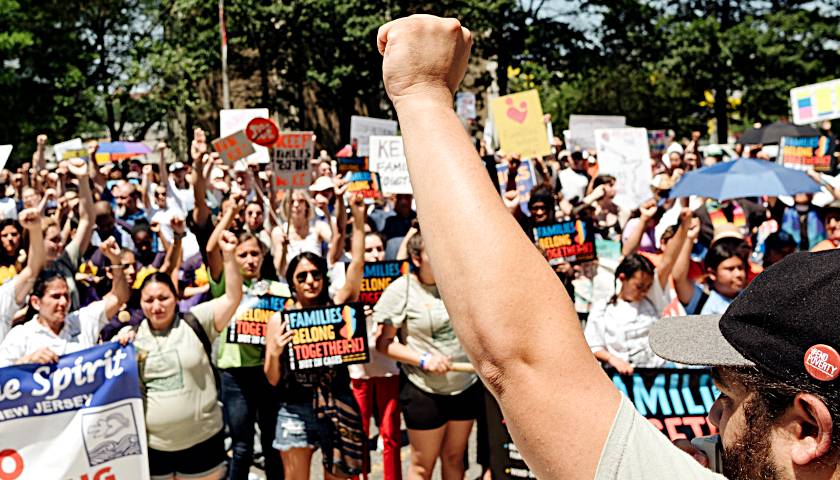by Carrie Sheffield
“There is an important body of conservative thought that is now nearly or completely absent on the faculties of many eminent universities,” former Harvard University President Derek Bok wrote in Harvard Magazine following Hamas’ terrorist attacks Oct. 7 in Israel and the ensuing campus chaos.
He recommends “some immediate progress by trying to hire conservatives as visiting professors or lecturers while also encouraging conservative students with ability to consider embarking on an academic career,” Bok wrote.
One area sorely needing hiring changes is mental health care.
A profound mismatch exists between proven treatments for mental illness and the worldview of practitioners. Robust scientific evidence correlates faith and religious practice with strengthening mental health and preventing suicide and drug and alcohol overdoses.
A faith-based worldview, often correlated with what society deems “conservative” or “traditional” religious values, is highly underrepresented among psychiatrists. For example, psychiatrists ranked 23rd among 24 medical specialists in their low propensity for Republican Party registration—far below the general population, Yale researchers reported.
The religious composition of the mental health industry doesn’t mirror the United States. Similar trends can be seen across elite media and Hollywood. This is creating massive cultural blind spots—including in the treatment of mental health. This is why we are getting the “Bad Therapy” identified by author Abigail Shrier.
The Centers for Disease Control and Prevention late last year released provisional data showing 49,449 people committed suicide in the United States in 2022. This nearly 3% increase from 2021 is the highest number ever recorded and the highest rate since 1941—the aftershocks of the Great Depression. It’s nearly 17 times the number of people killed in the terrorist attacks of 9/11.
Yet women who attend religious services at least weekly are 68% less likely to die “deaths of despair”—suicide, drug overdose, or alcohol poisoning. Men are 33% less likely, according to 2020 research from Harvard University’s School of Public Health.
The National Bureau of Economic Research reported that states with declining religious attendance correlated with increased deaths of despair, and vice versa.
A literature review appearing in Psychiatric Timesreported: “Of 93 observational studies, two-thirds found lower rates of depressive disorder with fewer depressive symptoms in persons who were more religious. … a review of 134 studies that examined the relationships between religious involvement and substance abuse [concluded that] 90% found less substance abuse among the more religious.”
Research from the Psychology of Religion and Spirituality found atheism correlates with emotional suppression. Psychology professors (along with biologists) are least likely among all disciplines to believe in God, Harvard reported. The journal Sociology of Religion similarly found that psychologists are the least religious of American professors.
This is a troubling combination. The same trained experts ordained to heal mental disorders are sometimes the very ones who are skeptical of rescuing balm.
A recovered agnostic, I experienced the power of faith to heal my own mental health, as I recount in my memoir “Motorhome Prophecies: A Journey of Healing and Forgiveness.” Over the years, I visited hospitals nine times (sometimes in multiple overnight stays) for depression, fibromyalgia, suicidal ideation, and post-traumatic stress disorder. Sadly, three of my siblings attempted suicide.
I struggled with anxiety, PTSD, depression, and suicidal ideation before I returned to God and was baptized as a Christian. Eventually, I was able to forgive my dad for the severe abuse he wrought on our family through his toxic cult.
During my childhood, I attended 17 public schools as well as home school, living in various motor homes, sheds, tents, and sometimes houses amid poverty, welfare, and sexual abuse. My mom gave birth when our family lived in a tent, and I took my ACT exam when our family lived in a shed in the Ozarks with no running water. Two brothers eventually developed schizophrenia. One brother sexually assaulted me and tried to rape me; the other accused me of trying to seduce him.
My dad said my blood changed when I left home for college, that I was no longer his daughter. He banished me from home, claiming I was satanic and would corrupt my siblings since I was first to leave but fifth in birth order. I was declared legally estranged from my parents to obtain Pell Grants to pay for college.
After numerous unexpected turns, including a full tuition scholarship to Harvard for a master’s degree, a successful media career, and time as a Goldman Sachs and Wall Street analyst, I became a Protestant Christian in December 2017, following nearly 12 years as a bitter agnostic.
The biggest hurdle I needed to overcome was comprehending the difference between man-made abuse and healthy faith in God.
Faith-filled communities and transformative prayer practices healed my brain. Dr. Curt Thompson, a renowned Christian psychiatrist with expertise in neuroscience and spirituality, wrote a book, “Anatomy of the Soul,” that changed my thinking about my brain. It was deeply moving and hopeful to learn about the brain’s neuroplasticity, proving indeed that I could change my brain’s wiring.
And, with God’s help, I did. I struggle like everyone does to some extent. However, since embracing faith in my mental health treatment, I gradually stabilized and today experience what the Bible calls “the peace of God, which surpasses all understanding.”
With record suicides and depression rates, sadly, we’re suffering a growing mental health crisis in America, part of why Gen Z is seeing a faith revival. As Boston University researcher Brian J. Grim notes, faith is often the most powerful, lasting factor credited with healing people from drug and alcohol addiction.
This isn’t to say that a nonbeliever can’t effectively treat someone with mental health issues. It’s just noting that the idea of “lived experience”—an idea embraced by progressive academics—is sorely lacking in the area of faith and mental health. The lived experience of faith’s positive impacts is missing in today’s mental health community. This blind spot could be causing considerable harm to patients.
In this season of campus reform, mental health systems must seek out faculty and expand curriculum design to embrace the power of faith to save lives and heal minds.
– – –
Carrie Sheffield, a columnist and policy analyst, is the author of the memoir “Motorhome Prophecies: A Journey of Healing and Forgiveness.” She also is a Tony Blankley fellow for public policy and American exceptionalism at The Steamboat Institute.




